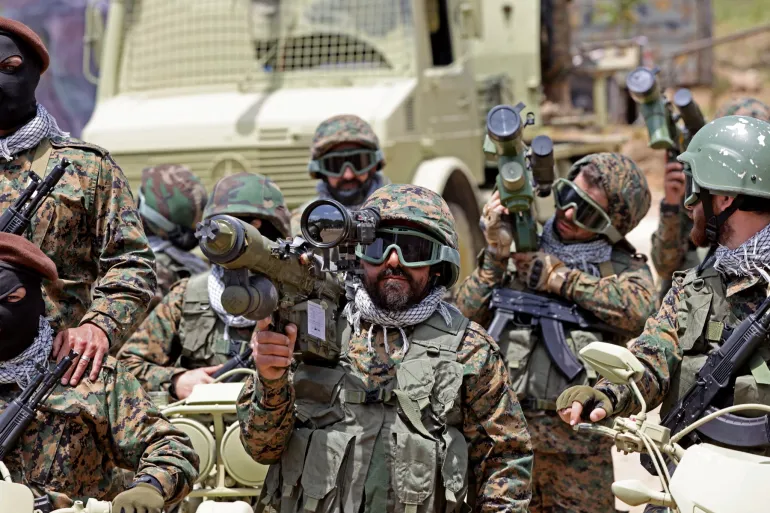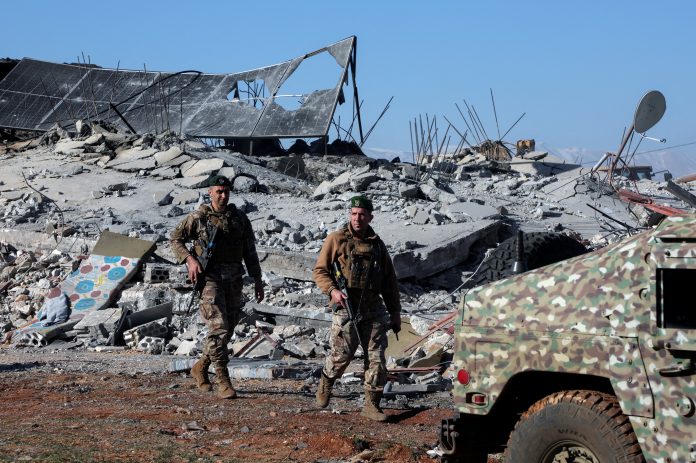Amid escalating tensions between Hezbollah and Israel, thousands of fighters from Iran-backed groups across the Middle East stand ready to support Hezbollah in Lebanon should conflict with Israel intensify.
This readiness follows ongoing exchanges of fire along the Lebanon-Israel border, triggered in part by a deadly assault from Hamas in Gaza. A recent Israeli airstrike in southern Lebanon, killing a senior Hezbollah commander, further escalated hostilities, prompting Hezbollah to retaliate with rockets and drones aimed at northern Israel.
Hezbollah leader Hassan Nasrallah has acknowledged offers of support from various militant groups but indicated that Hezbollah already boasts a formidable force exceeding 100,000 fighters.
While current engagements rely on advanced missile and drone capabilities, Nasrallah has hinted at the potential for broader involvement from fighters across Iran, Iraq, Syria, Yemen, Afghanistan, and Pakistan in the event of a full-scale war.

Iran-backed groups in Lebanon and Iraq affirm their readiness to mobilize fighters if conflict erupts, leveraging their presence in Syria to potentially enter Lebanon clandestinely.
They operate under the “axis of resistance” strategy, coordinating with Hezbollah to challenge Israeli actions in Lebanon and Gaza, vowing to fight until Israeli offensives against Hamas cease.
Experts suggest that while current skirmishes rely on technological warfare, a prolonged conflict could necessitate additional fighters from outside Lebanon. This prospect underscores the strategic leverage that foreign fighters could offer in a protracted engagement against Israel, building on their shared combat experience in Syria.
Israeli officials, acknowledging the potential influx of foreign fighters, express concerns over a multi-front conflict involving Hezbollah, Hamas, and other groups.
They highlight Hezbollah’s increased aggression, which they argue poses significant risks for Lebanon and the wider region. Despite these tensions, Hezbollah officials assert their preference to avoid all-out war but assert readiness to respond forcefully to any Israeli escalation.
The United Nations and regional analysts warn of the precarious situation, noting the real danger of miscalculations leading to a broader and more devastating conflict akin to the 2006 war.
Casualties have already mounted on both sides, with hundreds killed and tens of thousands displaced, underscoring the volatile nature of the current standoff between Hezbollah and Israel.


